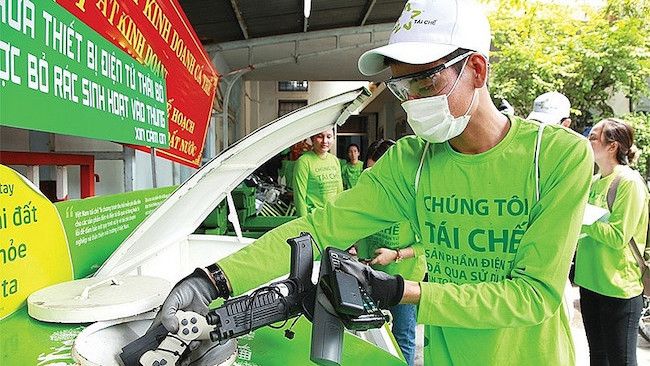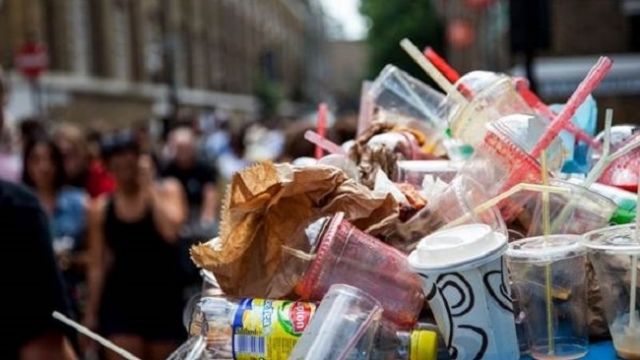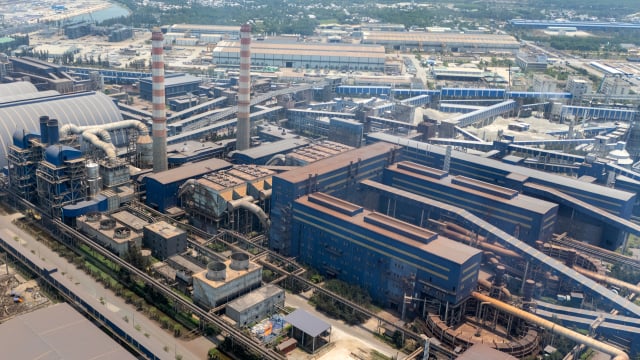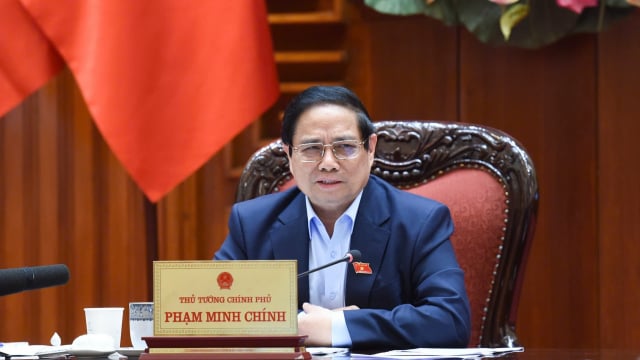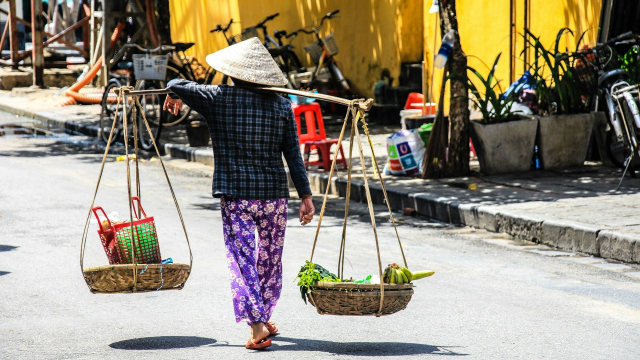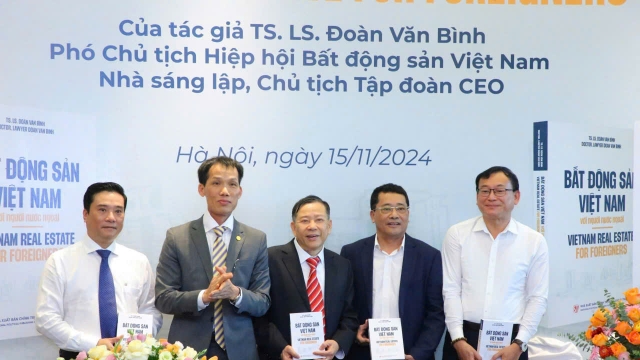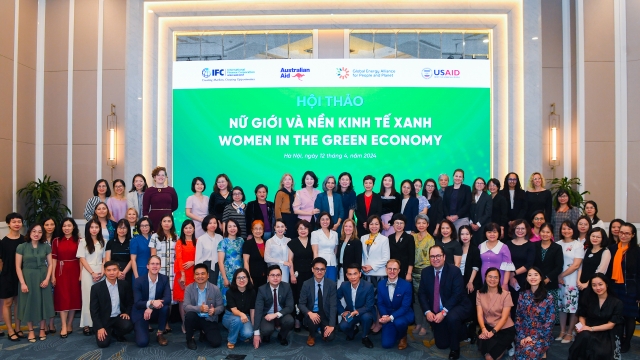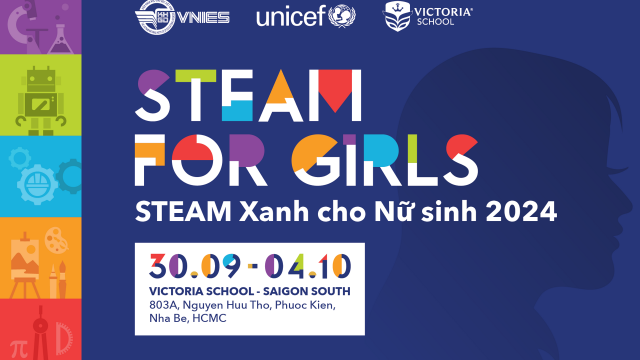National Focus
ADB lends sustainable waste management in Binh Duong
The Asian Development Bank (ADB) and Binh Duong Water Environment Joint Stock Company (BIWASE) signed a $13 million loan to finance the construction and operation of a composting plant, and waste-to-energy (WTE) facility in Binh Duong province.
The financing comprises $7 million from ADB’s ordinary capital resources and, $6 million from the Leading Asia’s Private Infrastructure Fund (LEAP) administered by ADB.
The financing package also includes a parallel cofinancing of $7 million from the Japan International Cooperation Agency.
The composting plant will have a processing capacity of 840 tons daily, while the WTE facility will be able to process 200 tons of industrial and municipal solid waste per day to generate 5MW of electricity for in-house use at the South Binh Duong Solid Waste Treatment Complex.
Output from the compost facility will be sold as fertilizer for agricultural use.
“Vietnam’s rapid urbanization and economic growth has led to a sharp increase in municipal and industrial waste, and yet long-term financing for waste treatment plants remains a challenge,” said the Director general of ADB’s private sector operations department Suzanne Gaboury.
This project addresses the pressing need for efficient waste management in Binh Duong province, and provides a strong case for commercial lenders, to consider future investments to make cities more livable and develop ways of generating renewable energy that help tackle the causes of climate change.
Binh Duong province is one of the most rapidly industrializing provinces in Vietnam, but this rapid growth generates large amounts of solid waste. In 2019, Binh Duong province generated about 2,600 tons of waste per day, slightly higher than the global average. Industrial composting and WTE facilities can reduce the increasing volume of waste going to landfills.
ADB Director general for Southeast Asia Ramesh Subramaniam stated that a rapid increase in municipal and industrial waste in fast-growing parts of Vietnam is straining the country’s waste management system, and if unchecked, can threaten public health.
This project supports Vietnam’s continuous efforts to improve the overall waste management system. It will provide a model for other Vietnam provinces and surrounding countries seeking to reduce waste through modern processing systems, and reduce the amount of waste that ends up in landfill.
“ADB has been a long-term partner in our work to support Vietnam’s water and sanitation priorities, and we look forward to working with ADB again in this project,” said BIWASE’s chairman of the board of directors Nguyen Van Thien. “This project shows international and commercial financers that Vietnam’s waste management sector is both feasible and attractive.”
BIWASE was founded in 1975 as a government-owned entity, and is one of the largest industrial solid-waste treatment providers for industrial and commercial users in Vietnam.
It became a joint-stock company in 2016 and was listed on the Ho Chi Minh Stock Exchange in 2017. BIWASE is the sole provider of municipal solid waste treatment for the Binh Duong province including collection, recycling, treatment, and final disposal.
LEAP is an ADB-managed fund capitalized with a $1.5 billion commitment by the Japan International Cooperation Agency. Established in 2016, LEAP is focused on the delivery of high-quality and sustainable private sector infrastructure projects that reduce carbon emissions, improve energy efficiency, and offer accessible and affordable health care, education, and communication services to ADB’s developing members.
In recent years, Vietnam havs recorded positive changes in waste-to-energy areas in particular, and plastic waste recycling in general, which attract lots of businesses and funding organizations, contributing to Vietnam's shifts to a low-carbon economy.
For example, last year, IFC provided a $30 million financing package to fund the construction of a waste-to-energy plant in Bac Ninh province.
In addition, it also gave over $212 million package to VPBank to boost climate-friendly projects, the first green loan of IFC to a bank in Vietnam.
About one third of the financing package will be earmarked for climate-friendly projects, creating new options for businesses to obtain green financing at a favorable interest rate.
Moreover, founded in 2019, nine leading FDI and Vietnamese companies having high prestige from consumer goods, packaging, retail, and import industries, jointly established Packaging Recycling Organization Vietnam (PRO Vietnam).
It aims at making Vietnam green, clean, and beautiful by promoting a circular economic model through more accessible and sustainable packaging collection and recycling process.
F&B's role in handling plastic waste
Resolution 68: A turning point in Vietnam's private sector policy
As Vietnam sets its sights on becoming a high-income country by 2045, Resolution 68 lays a crucial foundation. But turning vision into reality requires not only good policy - but also unwavering execution, mutual trust and national unity.
Vietnam plans upgrade of Gia Binh airport to dual-use international hub
Vietnam plans to upgrade Gia Binh Airport in Bac Ninh province into a dual-use international airport to support both military and civilian operations, the government said on Friday.
Lives under the scorching sun: Outdoor workers racing against climate change
Under unforgiving conditions, the outdoor workers - the backbone of urban economies - endure the harshest impacts of climate change while remaining overlooked by social safety nets. Their resilience and struggles highlight the urgent need for better protection in the face of rising temperatures and precarious livelihoods.
CEO Group chairman unveils guide to Vietnam real estate for foreigners
Doan Van Binh, Chairman of CEO Group and Vice President of the Vietnam National Real Estate Association, introduced his latest book, “Vietnam Real Estate for Foreigners,” at a launch event in Hanoi on Friday.
Women leading the charge in Vietnam's green transition
Acting for increased women’s participation and leadership in climate action, Vietnam can accelerate a transition that is more inclusive, just, and impactful.
Steam for girls: A journey of passionate and creative girls
The "Steam for girls 2024" competition provides a creative platform for Steam and an opportunity for students to connect with peers from various regions within Vietnam and internationally.















